White Dew, Condensing the Sound of Autumn
White Dew warms the hues of autumn, while the bright moon shines through the quiet night.
Today is the third solar term of autumn—White Dew. If autumn had not yet arrived during End of Heat (Chushu), then it surely awaits the coming of White Dew.
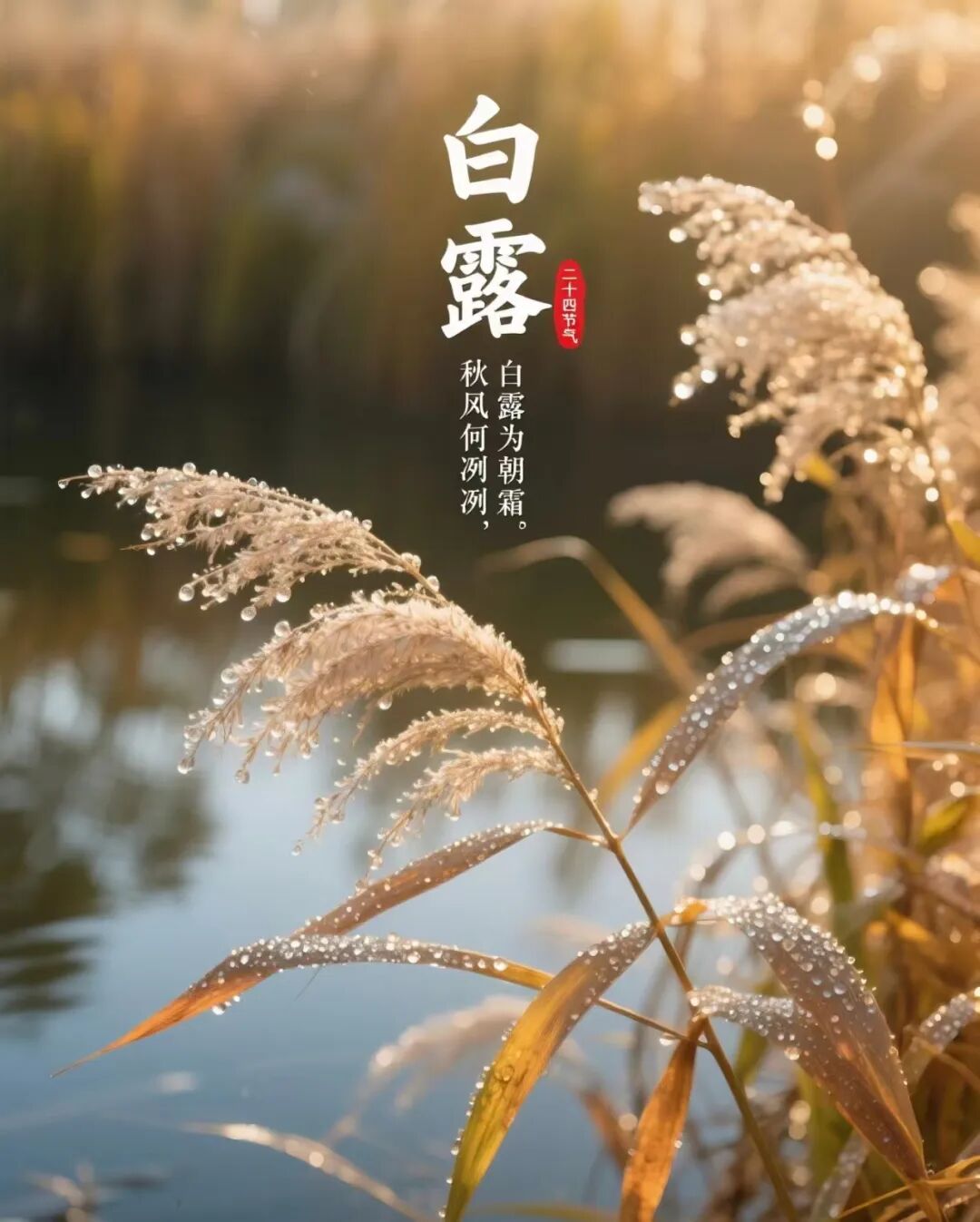
"White Dew" is a name especially cherished by many—bright, clear, and poetic. "Dew" is moisture, descending from the heavens, condensing into pearls of water. As the yin energy deepens, it quietly transforms into the dew of autumn.
White Dew is a solar term destined to be written into poetry. "Luxuriant are the reeds, White Dew turns to frost. The one I long for dwells on the other side of the water." Over a thousand years ago, that single drop of White Dew had already fallen into the autumn waters of The Book of Songs, cold and pure as ever.
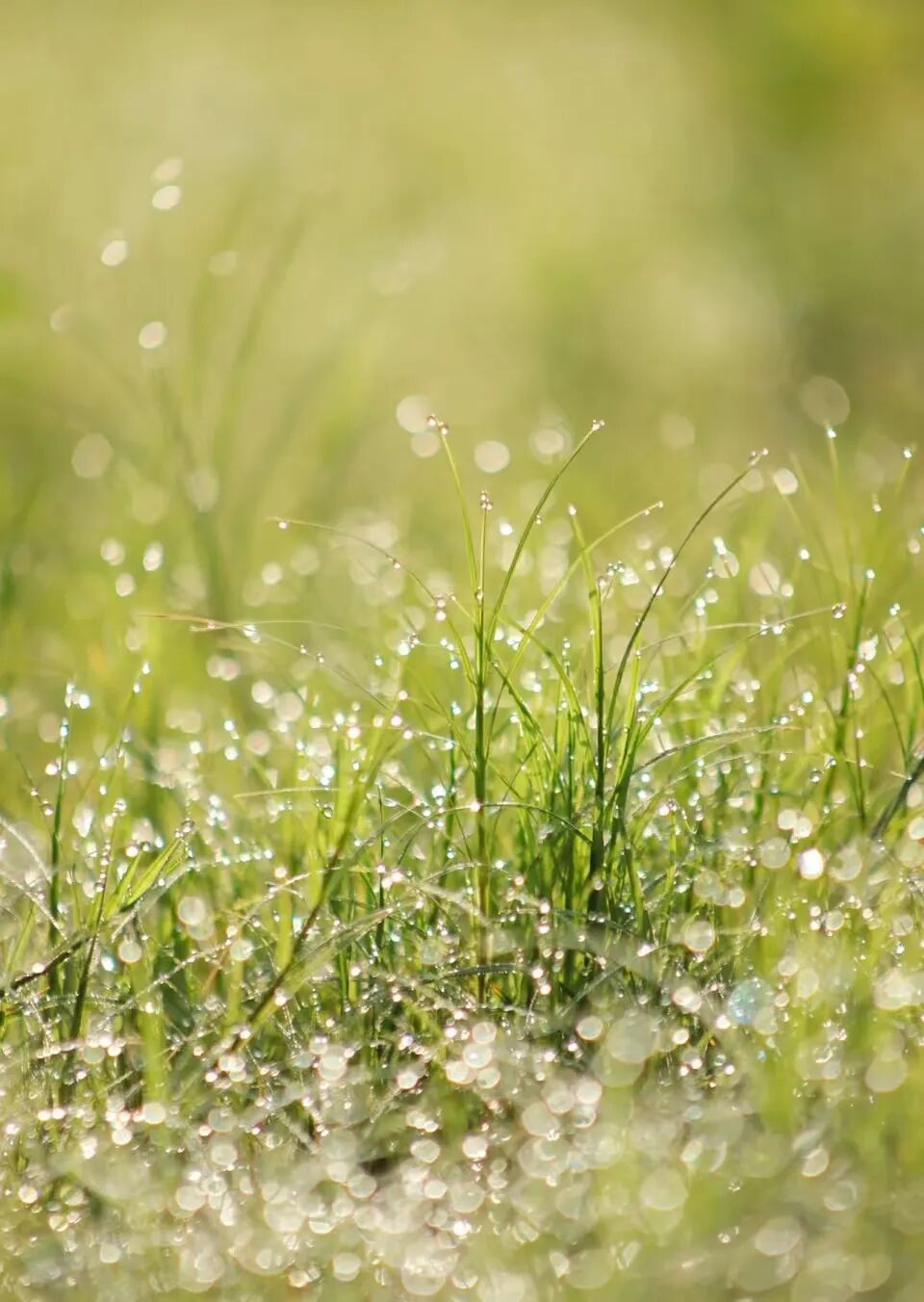
At the time of White Dew, autumn winds arise, mornings grow cool, and nights grow long. The sky stretches high and clear, clouds like gauze; where the wind passes, it carries the true sound of autumn. When White Dew arrives, travelers set out, like migratory birds, coming and going with the seasons. It turns out that even memories have their own solar terms—grasses of Yan just sprouting, mulberries of Qin turning green; remembered at Grain Rain, but thought of again by White Dew.

White Dew is both a farewell to midsummer and a preparation for late autumn. In this moment, all things quiet down, begin to settle, to draw inward, and return to their essence.
People, too, welcome this season in gentle ways:
Among folk traditions, there is the custom of eating longan at White Dew. A single fruit moistens the lungs, replenishes energy, warms the body, and nourishes the heart—helping people adapt to the temperature differences between day and night, and the creeping autumn chill. In addition, drinking White Dew tea—pure, mellow, and smooth—seems to gather the clarity of early autumn into one’s heart.
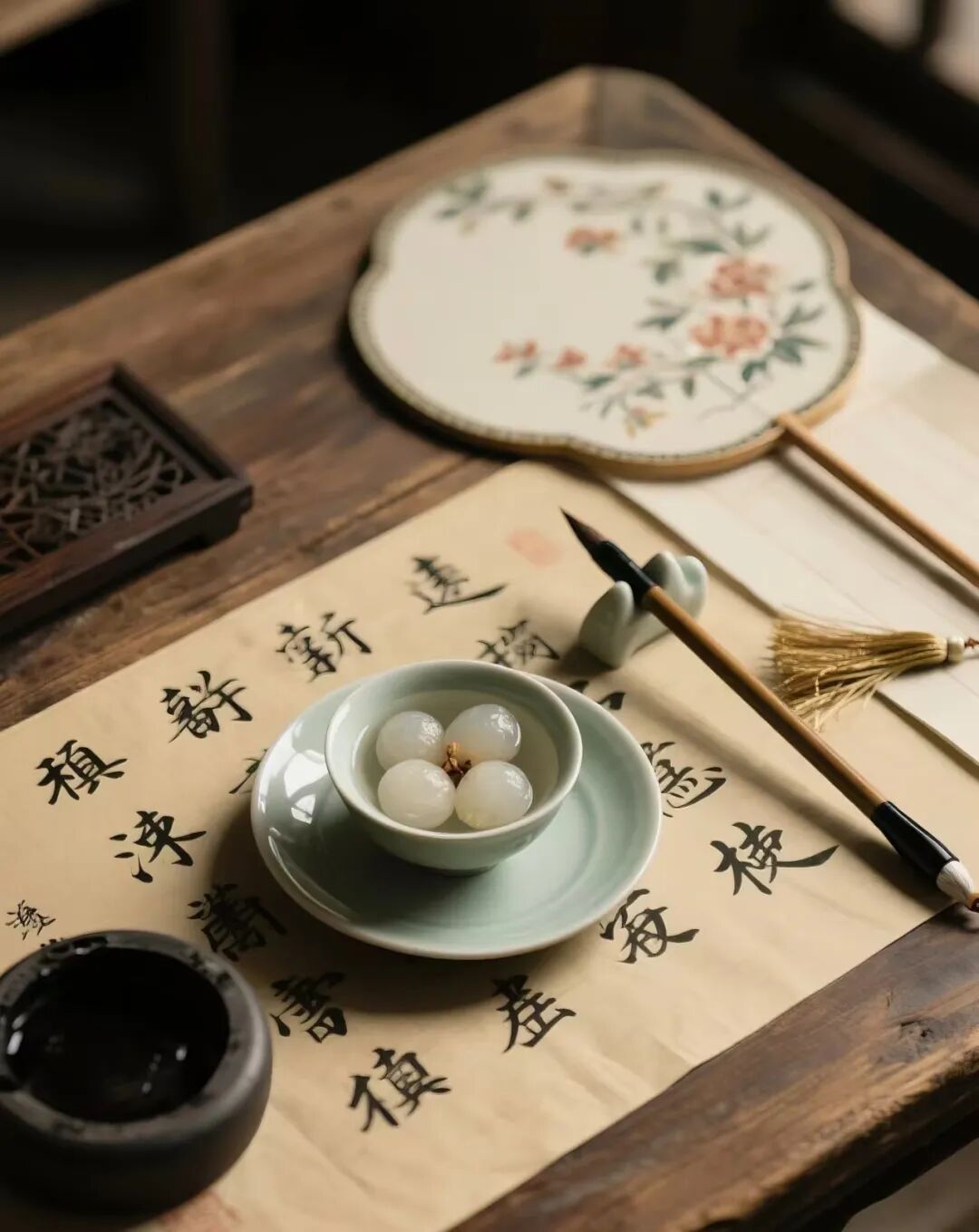
White Dew is also a fine time for brewing rice wine, gathering fresh dew, and admiring the autumn moon. In some places, people still collect morning dew to refresh the mind and brighten the eyes; sipping wine beneath the moon or strolling through autumn landscapes remains a refined tradition carried on by the Chinese people for thousands of years.
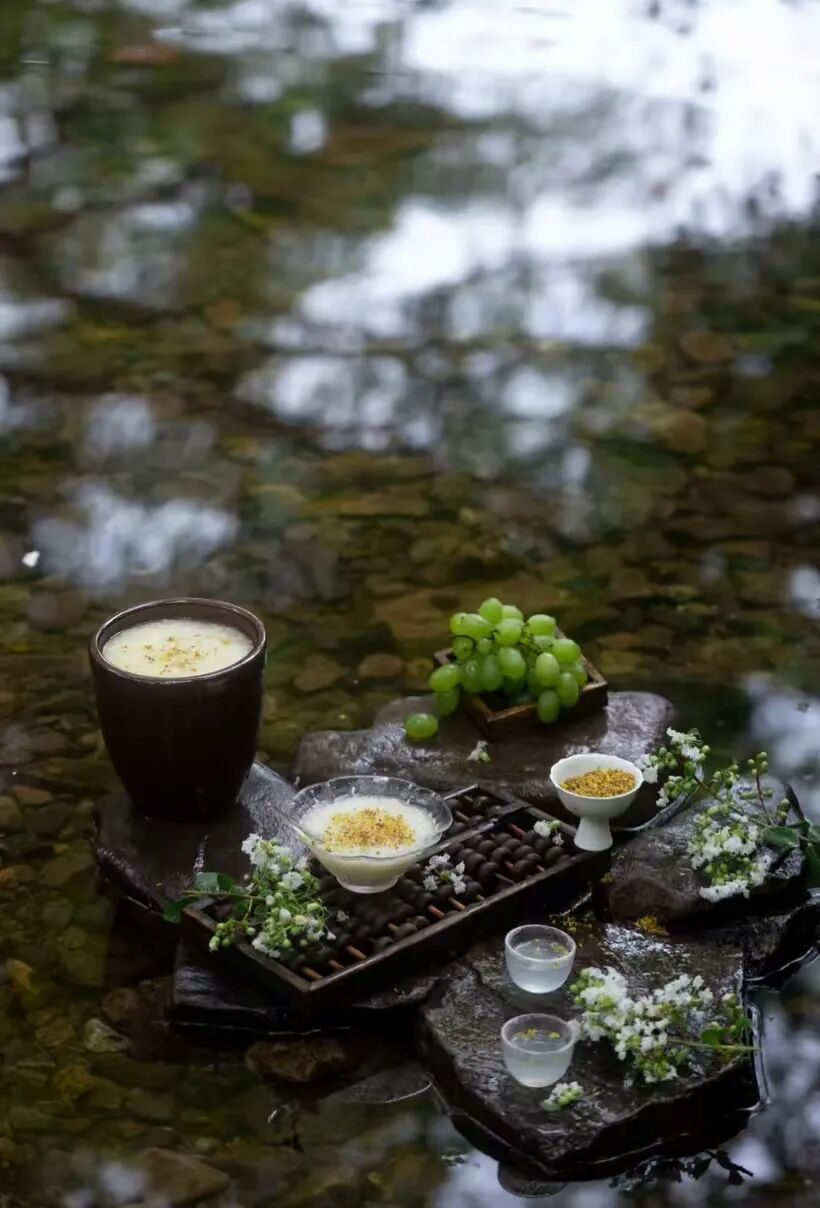
These ancient customs are not only for the body' s needs, but also rituals for the soul, making this solar term naturally become a season full of poetry.
What is White Dew?
It is the moment when heaven and earth cause dew to condense into whiteness, while the heart grows clear and bright.
It is the stroke of time' s pen, writing a line of crystalline verse.
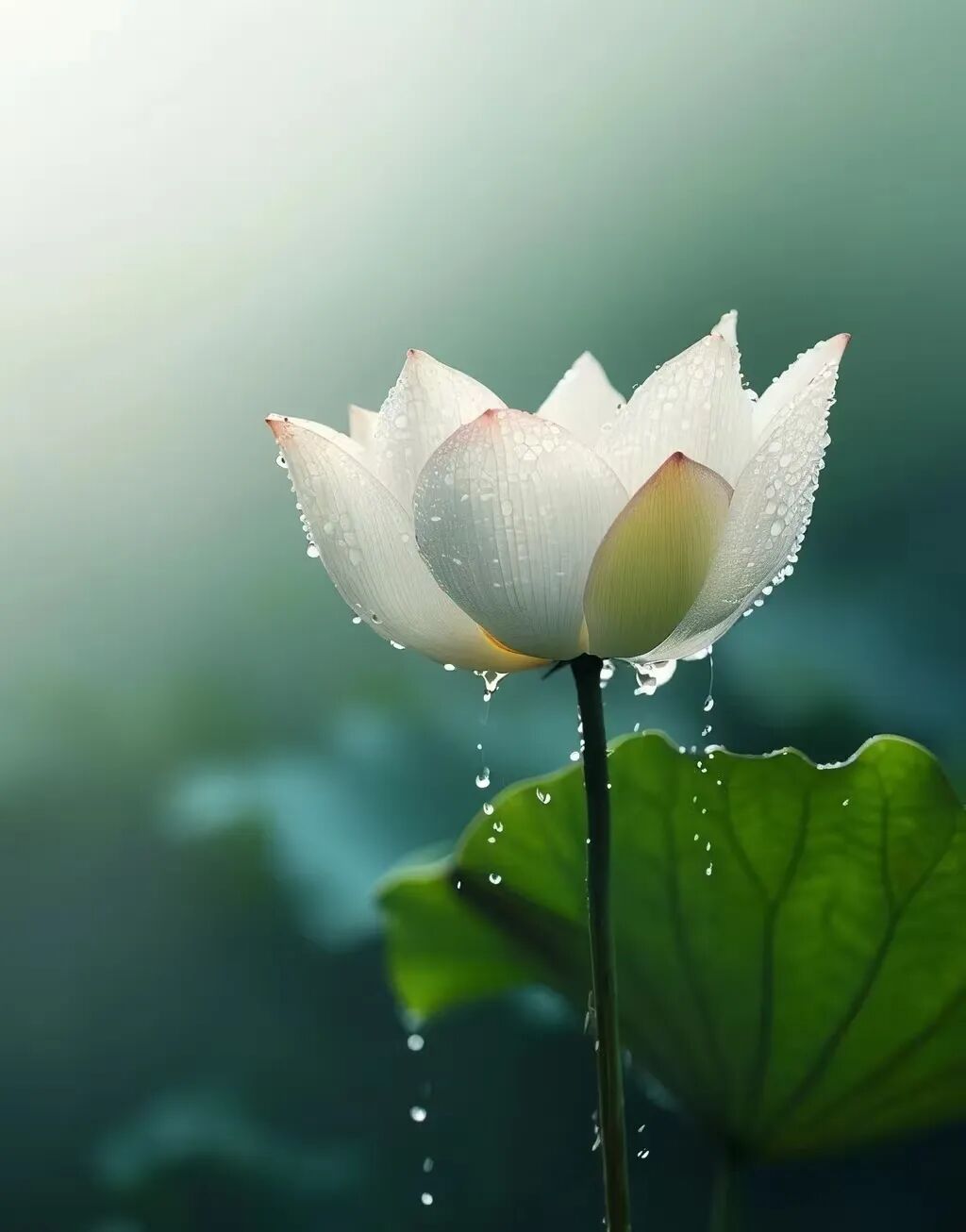
White Dew is a season for writing poems and a moment for reading the heart. It teaches us, in the autumn wind, to gaze steadily—to look back at the past, and also to look toward the distance. So let us stand at the window of White Dew and listen to the true sound of autumn' s arrival:
Hear the dew gently fall, Hear the autumn wind pen its letters, Hear the moonlight spread across the road, Hear past memories turn into clouds.
May you be safe from dawn to dusk, peaceful each day; May your heart have its resting place, and your thoughts find their echo.


访客通道(项目入口)
还没有账号?
立即注册